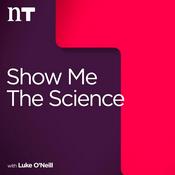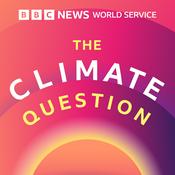Sexual and Reproductive Health Matters Podcast
Sexual and Reproductive Health Matters (SRHM)

Latest episode
68 episodes
The Global Gag Rule Expanded: How Anti-Rights Ideology Is Governing U.S. Foreign Aid
30/1/2026 | 35 mins.In a new episode of the Sexual and Reproductive Health Matters (SRHM) podcast, SRHM convenes leading experts and advocates to unpack the implications of three newly issued U.S. foreign assistance rules and what they mean for sexual and reproductive health and rights (SRHR) worldwide.
To explore the nature, scope, and consequences of these rules, SRHM Chief Executive, Eszter Kismődi, is joined by Elizabeth Sully, Director of International Research at the Guttmacher Institute; Amy Friedrich-Karnik, Director of Federal Policy at the Guttmacher Institute; and Mina Barling, Director of External Relations at the International Planned Parenthood Federation (IPPF).
Together, they bring complementary perspectives spanning policy analysis, evidence generation, and frontline service delivery and advocacy.Extractivism, Gold Mining, and Sexual and Reproductive Health and Rights in Kenya: Community Realities and Wider Implications
23/1/2026 | 35 mins.Eszter Kismodi, Chief Executive of SRHM, is joined by Allan Maleche (KELIN), Mercy Kalemela and Audrey Bigeti (Girls to Women Kenya) to explore how extractive industries are reshaping land, power and sexual and reproductive health and rights in Kenya.
Focusing on gold mining in Kakamega County, the episode examines land dispossession, mercury exposure, gender-based violence and the everyday health risks faced by women and girls, while situating these harms within a broader global pattern of extractivism.
A timely conversation on development, justice and why SRHR must be central to debates on land and resource extraction.- At a time when sexual and reproductive health and rights are under renewed political and ideological attack globally, African researchers and advocates are strengthening their collective voice and leadership on abortion.
In this SRHM Podcast episode, Eszter Kismődi spokewith Naa Dodoo, Ramatou Ouedraogo and Béniel Agossou about the work of ACORCA – the African Coalition for Research, Communication and Abortion and itsvision for an Africa where every woman and girl can access safe, high-quality abortion services without stigma or fear. Sex, Satisfaction, and Switching: The Questions Contraceptive Research and Implementation Forgot to Ask
07/11/2025 | 57 mins.On World Contraception Day, SRHM, in partnership with The Pleasure Project and WHO, hosted a powerful webinar launching a landmark systematic review: Sex, Satisfaction, and Switching: The Questions Contraceptive Research and Implementation Forgot to Ask.
This review provides the first systematic evidence on the extent to which sex life concerns influence contraceptive discontinuation and switching.
Key findings highlight that 1 in 20 contraceptive users discontinue while still in need due to the impact on their sex life. This rivals other commonly cited reasons such as cost and access, yet is rarely considered in counselling, research or policy. The review also shows just how little sexual acceptability has been studied in relation to contraceptive use – underscoring the urgent need to bring pleasure, intimacy and lived experience into sexual and reproductive health (SRH) research and practice.
Speakers included:
Welcome by Sapna Desai | Editor-in-Chief, Sexual and Reproductive Health Matters (SRHM)
Introductory poem by Theresa Mae Caragan | Youth Advisor, Plan International Pilipinas
Dr Lianne Gonsalves | Scientist, Human Reproduction Special Programme (HRP), World Health Organization (WHO)
Dr Faysal El Kak | President, World Association of Sexual Health and Director of the Women Integrated Sexual Health (WISH) Program Department of Obstetrics and Gynecology, American University of Beirut Medical Center
Dr Samukeliso Dube | Executive Director, FP2030
Moderated by Anne Philpott | Founder, The Pleasure Project
The contributions from the research team, global advocates and practitioners, as well as youth voices and poetry reminded us that pleasure is not a luxury, but a right tied to dignity, safety and self-worth.
Speakers called for urgent action to:
Make pleasure a priority in the global SRHR agenda.
Ask users directly about how methods affect their sex lives.
Normalise positive framing of contraception as enabling safe and pleasurable sex.
This research represents a crucial step toward humanising contraceptive delivery, challenging over-medicalised narratives, and designing SRHR services that reflect people’s realities.
Read the full paper, 'The sex effect: the prevalence of sex life reasons for contraceptive discontinuation. A systematic review and meta-analysis' at srhmjournal.org.A Landmark Win for Reproductive Rights: Kenya’s High Court Ruling on the National Reproductive Health Policy
31/10/2025 | 25 mins.In this episode of the SRHM Podcast, SRHM Chief Executive Eszter Kismodi speaks with Allan Maleche, Executive Director of KELIN Kenya, and Jerop Limo, Executive Director of the Ambassadors for Youth and Adolescent Reproductive Health Programme (AYARHEP).
Together, they discuss a groundbreaking case before the High Court of Kenya, which challenged the country’s National Reproductive Health Policy (2022–2032) for being discriminatory and unconstitutional.
The conversation explores how this ruling — a partial but significant victory — advances reproductive rights, upholds the Maputo Protocol and Kenya’s Constitution, and reinforces the power of youth and civil society in shaping rights-based policy.
Allan and Jerop reflect on the implications for access to SRHR services, bodily autonomy, and inclusion, and share what’s next for advocacy, policy reform, and accountability in Kenya.
More Science podcasts
Trending Science podcasts
About Sexual and Reproductive Health Matters Podcast
The SRHM Podcast explores new research and emerging trends in the field of sexual and reproductive health and rights.
Sexual and Reproductive Health Matters or SRHM promotes sexual and reproductive health and rights globally. At the heart of SRHM is a multidisciplinary, open-access, peer-reviewed journal. SRHM also creates and participates in spaces that motivate improvements in research, policy, services and practice. It contributes to capacity building in knowledge generation.
Learn more at srhm.org.
Music by Tiber Krisztián and Salamon Botond
Sound editing by We Edit Podcasts
Podcast websiteListen to Sexual and Reproductive Health Matters Podcast, The Infinite Monkey Cage and many other podcasts from around the world with the radio.net app

Get the free radio.net app
- Stations and podcasts to bookmark
- Stream via Wi-Fi or Bluetooth
- Supports Carplay & Android Auto
- Many other app features
Get the free radio.net app
- Stations and podcasts to bookmark
- Stream via Wi-Fi or Bluetooth
- Supports Carplay & Android Auto
- Many other app features


Sexual and Reproductive Health Matters Podcast
Scan code,
download the app,
start listening.
download the app,
start listening.





































